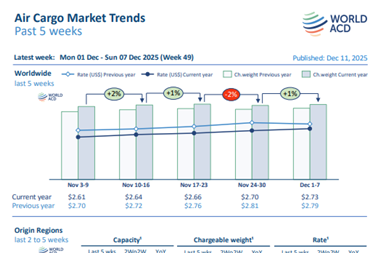FedEx has cancelled its outlook for 2020 and has warned that airfreight capacity on the transatlantic will come under pressure.
When announcing its third-quarter results, the express giant said that the unpredictable nature of the market — as a result of the coronavirus outbreak — meant it would not provide an outlook for fiscal 2020.
“We are suspending our fiscal 2020 earnings forecast for our consolidated and segment results due to the uncertainty caused by the coronavirus pandemic,” said Alan Graf, FedEx Corp executive vice president and chief financial officer.
“To mitigate these near-term headwinds and position the company for future earnings growth, we are attacking costs throughout the company by managing capacity, retiring our oldest and least-efficient aircraft, integrating TNT Express, and lowering our residential delivery costs by having FedEx Ground deliver FedEx SmartPost and certain day-definite FedEx Express packages.”
Meanwhile, FedEx is expecting the cargo capacity crunch being experienced on services to and from China to spread to the transatlantic as bellyhold capacity is removed from this market.
Brie Carere, executive vice president, chief marketing and communications officer, said: "In China, we have seen a rebound week over week since March 3.
"With the urgent need for stock replenishment and with air capacity shortage in the market, we believe demand will stay elevated. We continue to adjust transit times and spot prices specifically for China outbound to manage demand profitably.
"We continue to increase the transit differentials between our premium and our economy services to encourage the use of premium service for any time-critical shipments, given the volatility in the market.
"What started as a relief and recovery effort in China now unfortunately is global. The recently implemented travel ban between Europe and the US is expected to impact cargo capacity significantly since approximately 60% of the air freight capacity between Europe and the US are on passenger flights.
"We are now employing the same strategies in other parts of the world that have helped us manage demand and capacity constraints in China, including transit time extensions, dynamic spot price management and will also leverage peak surcharges for specific lanes and periods of time as they are required."
On intra-Europe, meanwhile, FedEx said it would continue to run its air and ground networks but it is adjusting its network and extending some transit times due to lockdowns.
Looking at fiscal third quarter financial performance, revenues increased by 2.9% to $17.5bn, operating income dropped by 54.9% to $411m and net income was down 57.4% to $315m.
Operating results declined due to weaker global economic conditions including the impact of the coronavirus, higher self-insurance accruals, an unfavorable variable incentive compensation comparison, increased FedEx Ground costs from expanded service offerings, the loss of business from a large customer [Amazon], a continuing mix shift to lower-yielding services and a more competitive pricing environment.
These factors were partially offset by the benefits from volume growth at FedEx Ground, an additional operating weekday, increased yields at FedEx Freight and the shifting of Cyber Week into December.















